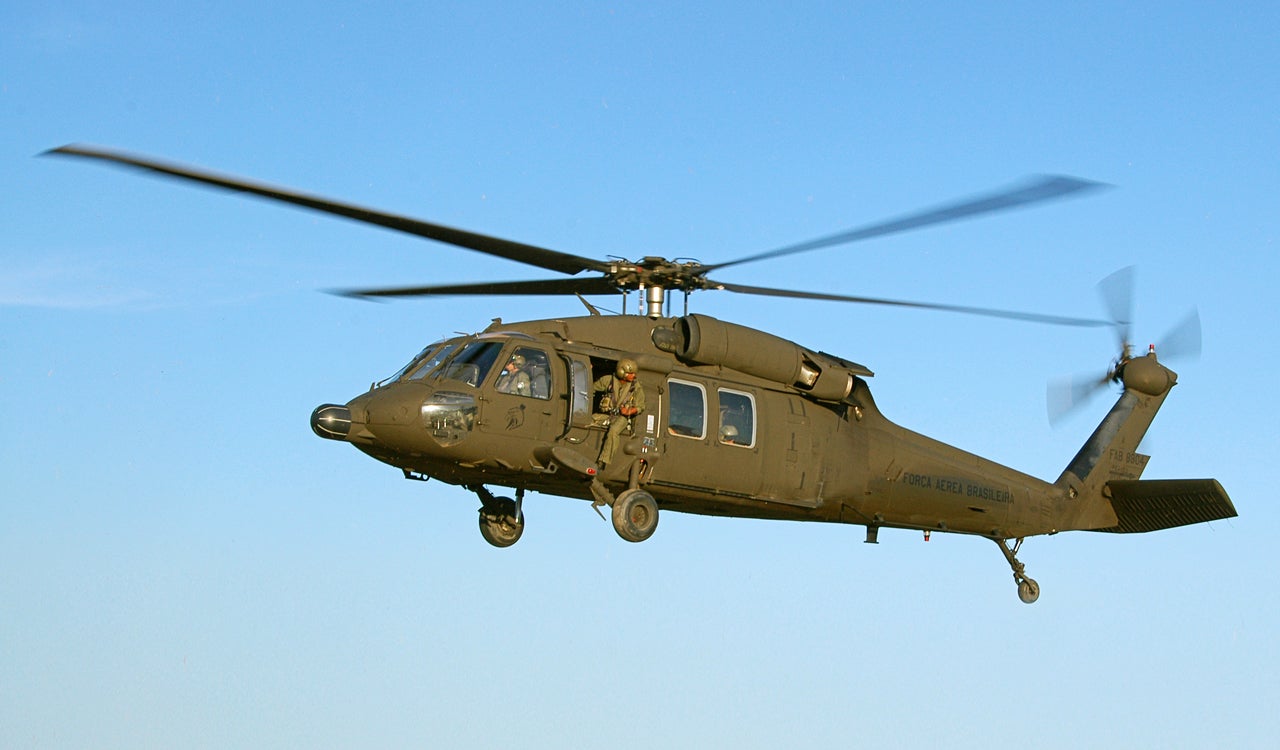UH 60 Black Hawk Helicopter Variants and Their Uses
UH 60 Black Hawk Helicopter Variants and Their Uses
Blog Article
The Influence of Lasting Practices on the Future of Airplane Procedures and Emissions Decrease
As the air travel market faces boosting analysis over its environmental effect, the fostering of lasting practices emerges as an important path toward future aircraft procedures and discharges decrease. Developments in lasting aeronautics fuels and innovations in hybrid propulsion innovations stand at the leading edge of this improvement, promising significant reductions in greenhouse gas discharges. Nevertheless, the successful integration of these initiatives rests on a variety of elements, including regulative frameworks and market partnership. The inquiry remains: just how will these evolving techniques improve the dynamics of flight and add to a much more sustainable future?

Overview of Lasting Practices
Sustainable methods in airplane procedures incorporate a series of approaches focused on lowering ecological influence while keeping operational performance. These techniques are essential in the aviation sector's dedication to decreasing its carbon footprint and adhering to worldwide ecological requirements. Secret efforts include enhancing flight courses to lower gas usage, improving maintenance procedures to make sure airplane operate at peak efficiency, and applying innovative innovations such as winglets and lightweight products that boost the rules of aerodynamics.

Engaging and educating staff on sustainability methods likewise play an essential duty, promoting a culture of ecological responsibility within organizations. Generally, the integration of these sustainable methods not just helps in reducing emissions but additionally enhances the long-term viability of the air travel field, ensuring it fulfills the demands of both customers and regulative bodies while contributing to worldwide sustainability goals.
Cutting-edge Gas Alternatives
Various ingenious fuel options are arising as pivotal options to lower the aviation market's reliance on traditional fossil gas. Among these alternatives, Lasting Aeronautics Gas (SAFs) have acquired substantial focus because of their possible to decrease lifecycle greenhouse gas emissions by approximately 80% compared to conventional jet fuels. SAFs are acquired from numerous feedstocks, consisting of waste oils, agricultural residues, and also algae, making them a versatile option for the market.
One more promising choice is hydrogen fuel, which, when made use of in gas cells, generates only water vapor as a byproduct. In addition, electric propulsion systems are being checked out, leveraging battery innovation to power airplane.
Lastly, biofuels derived from biomass are being examined, providing a sustainable choice that can be mixed with traditional gas. Jointly, these innovative fuel options stand for a critical action towards accomplishing a sustainable air travel ecological community, lining up with international discharges reduction targets and improving the market's ecological stewardship.
Technical Improvements in Aeronautics

Exactly how can technological improvements improve the future of aeronautics? Innovations such as electrical and hybrid propulsion systems are at the forefront, appealing considerable decreases in fuel usage and greenhouse gas exhausts.
Additionally, the implementation of advanced products, such as light-weight compounds, adds to enhanced the rules of aerodynamics and fuel effectiveness. Making use of expert system and machine understanding in trip procedures enhances path planning and lowers fuel burn by enabling real-time modifications based on weather condition and traffic conditions. Furthermore, the development of self-governing and remotely piloted aircraft systems stands to reinvent cargo and traveler transportation, potentially enhancing efficiency while decreasing human error.
Moreover, sustainable aeronautics modern technologies, including innovative air web traffic administration systems, can reduce and streamline operations congestion, resulting in lower exhausts during trip. These advancements collectively represent a paradigm change in aviation, promising a future where sustainability and operational effectiveness are linked, consequently supporting the market's dedication to lowering its ecological impact.

Regulatory Structure and Conformity
Taking into account the expanding focus on environmental stewardship within the air travel market, the regulative framework governing airplane operations is advancing to promote sustainable methods. Regulatory bodies, such as the International Civil Aeronautics Company (ICAO) and numerous nationwide air travel authorities, are introducing rigorous guidelines focused on reducing emissions and boosting functional effectiveness.
These regulations often include the fostering of Lasting Aviation Fuel (SAF), which has been recognized as a key element in accomplishing lower carbon footprints. Additionally, conformity with these laws needs airlines to apply operational techniques and innovative innovations, such as enhanced trip courses and enhanced air web traffic administration, to minimize gas consumption.
In addition, the enforcement of exhausts trading schemes and carbon offsetting efforts is ending up being great site progressively common, engaging airlines to check and report their emissions precisely. Non-compliance can result in considerable penalties, hence pushing click here now drivers to prioritize sustainability in their organization versions.
Eventually, the progressing regulative landscape not only drives technology and investment in environment-friendly modern technologies but also promotes a society of responsibility within the aviation industry. As these structures remain to establish, the emphasis on sustainable practices will be important to accomplishing the industry's lasting ecological objectives.
Future Trends in Airplane Workflow
As the aeronautics industry adapts to an increasingly stringent regulatory environment, future fads in airplane operations are readied to concentrate on innovative remedies that additionally boost sustainability and efficiency - uh 60. Trick advancements will likely consist of the adoption of advanced air website traffic administration systems, which use real-time information and fabricated intelligence to enhance flight courses, minimizing gas consumption and discharges
Another considerable pattern is the raised combination of sustainable air travel fuels (SAFs) These options over at this website to standard jet gas, stemmed from sustainable sources, can significantly decrease lifecycle greenhouse gas emissions. The sector's dedication to SAFs will likely accelerate as airlines work together with fuel producers to guarantee availability and cost-effectiveness.
Furthermore, the press in the direction of electrification and crossbreed propulsion systems is obtaining energy. Emerging aircraft designs will certainly incorporate these technologies, using quieter and much more reliable operations, especially for short-haul flights.
Conclusion
To conclude, the assimilation of lasting practices in aircraft operations holds significant potential for discharges decrease and improved efficiency. The adoption of lasting aeronautics fuels, combined with innovations in electrical and hybrid propulsion systems, is necessary for lessening lifecycle greenhouse gas exhausts. Additionally, optimizing trip courses and accepting innovative innovations add to a quieter and extra eco-friendly aeronautics industry. Collectively, these efforts line up with global sustainability objectives and lead the way for a greener future in aviation.
Advancements in sustainable aeronautics gas and improvements in crossbreed propulsion technologies stand at the center of this change, encouraging significant decreases in greenhouse gas exhausts.Many cutting-edge fuel options are arising as crucial remedies to reduce the aeronautics industry's reliance on standard fossil gas - uh 60. Amongst these choices, Sustainable Air travel Gas (SAFs) have actually gotten substantial attention due to their prospective to decrease lifecycle greenhouse gas emissions by up to 80% contrasted to conventional jet fuels.An additional substantial trend is the enhanced integration of sustainable air travel gas (SAFs) The fostering of lasting aviation gas, paired with developments in hybrid and electric propulsion systems, is necessary for minimizing lifecycle greenhouse gas discharges
Report this page